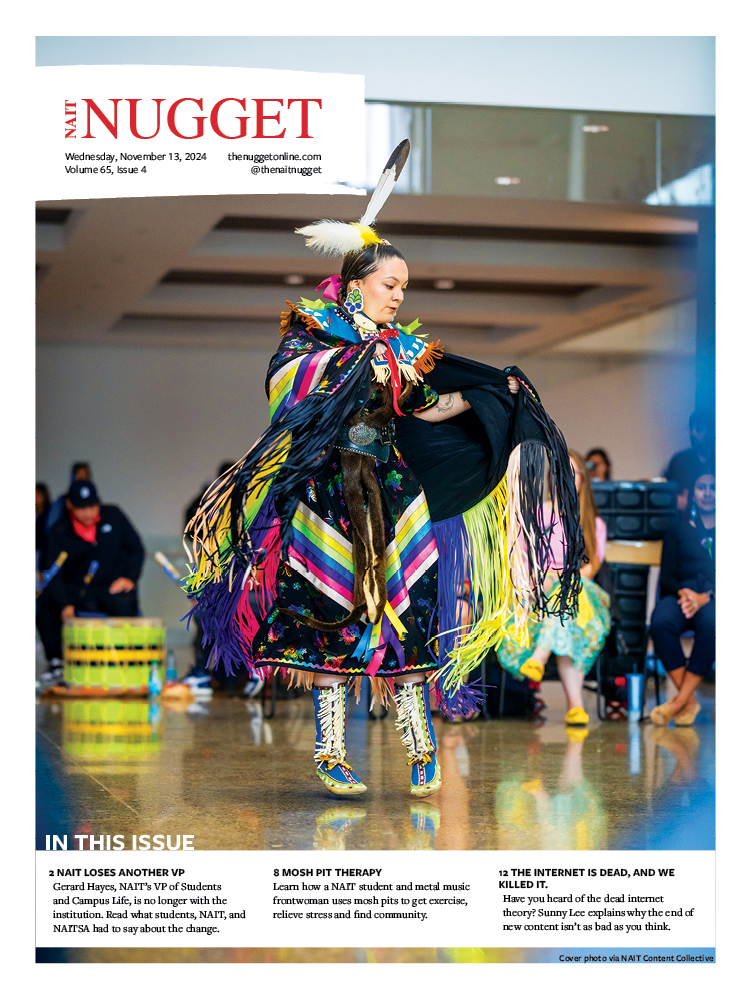The semester is halfway over, and some of us are already feeling fatigued and weary from mountains of homework and late-night study sessions. But don’t panic! As proposed and researched by internal medicine physician, Dr. Saundra Dalton-Smith, there are seven types of rest students can practice to help prevent burnout. These include physical, mental, social, spiritual, sensory, emotional and creative rest. According to her TED talk, rest is the most “underused, chemical-free, safe and effective alternative therapy available to us”.
1. Physical
Physical rest is one of the most evident types of rest needed, as our bodies naturally need time to recover from physical exertion. As busy students, it’s not uncommon to feel exhausted by the end of the day. Dr. Dalton-Smith states that physical rest requires both an active and passive component. Stretching between long periods of sitting, being wary of our workstation ergonomics or perhaps joining yoga classes offered by NAIT Well-Being focuses on the active component. Sleeping sufficient hours or taking power naps are ways people can practice the passive component of rest.
2. Mental
Mental rest allows time for the brain to wind down, and it includes activities that utilize minimal brainpower. If you find yourself struggling to recall information during exams or failing to concentrate during lectures, you may be lacking mental rest. Watching Netflix, enjoying hobbies and listening to podcasts or music are some ways to allow a busy brain to relax.

3. Social
Social rest is required when we overwhelm ourselves with too many social interactions or feel drained after spending time with others. This doesn’t necessarily mean the people we spend time with are toxic, but just that they’re using up much of our social energy. To practice social rest, have meaningful quality time around people you can be your authentic self with, and occasionally say no to optional social events.
4. Spirital
Spiritual rest, as described by Dr. Dalton-Smith, is “based on [our] own belief system[s]” and the need to feel like we’re “pouring ourselves back into humanity.” Burnout can happen when we fail to find meaning in our work, or a sense of belonging within groups. Prayer or Bible study groups are faith-based ways to practice spiritual rest, but activities such as community involvement, meditating or perhaps visiting NAIT’s reflection rooms for personal reflection can help refocus the mind.
5. Sensory
Sensory rest is important when things like bright lights, computer screens, phone notifications or background noises start causing sensory overload. Practice this type of rest by closing or resting the eyes for a few minutes throughout the day, turning off the radio during the drive home from school or intentionally unplugging from electronics before bed. Being easily irritated or angered can be a sign that you are in need of sensory rest.
6. Emotional
Emotional rest involves expressing the real, authentic self and honoring emotions. When a person hides their feelings or privately holds onto burdens, it doesn’t give opportunity to heal, feel heard, or experience vulnerability. Expressing feelings to a trusted friend, seeking therapy or journaling are examples of emotional rest. NAIT also offers counseling sessions for students seeking support.
7. Creative
Lastly, creative rest can be practiced by appreciating beauty, either natural or man-made. Examples include watching a sunrise or sunset, taking walks in nature, visiting the art gallery or engaging in music or dance. When brainstorming or being innovative becomes challenging, it is likely that we have used up our creative energy without any replenishment.
As the school year continues to progress, pausing occasionally to remind ourselves of the multiplicity of rest and how we can maximize the benefits of each category can be a great way to prevent chronic tiredness. Tackling all 7 types at once can overwhelm people, so Dr. Dalton-Smith suggests examining which area of rest is most lacking and starting there. Applying some of this knowledge and making small changes in our resting habits could be a step in the right direction to change the unhealthy culture of academic burnout.






